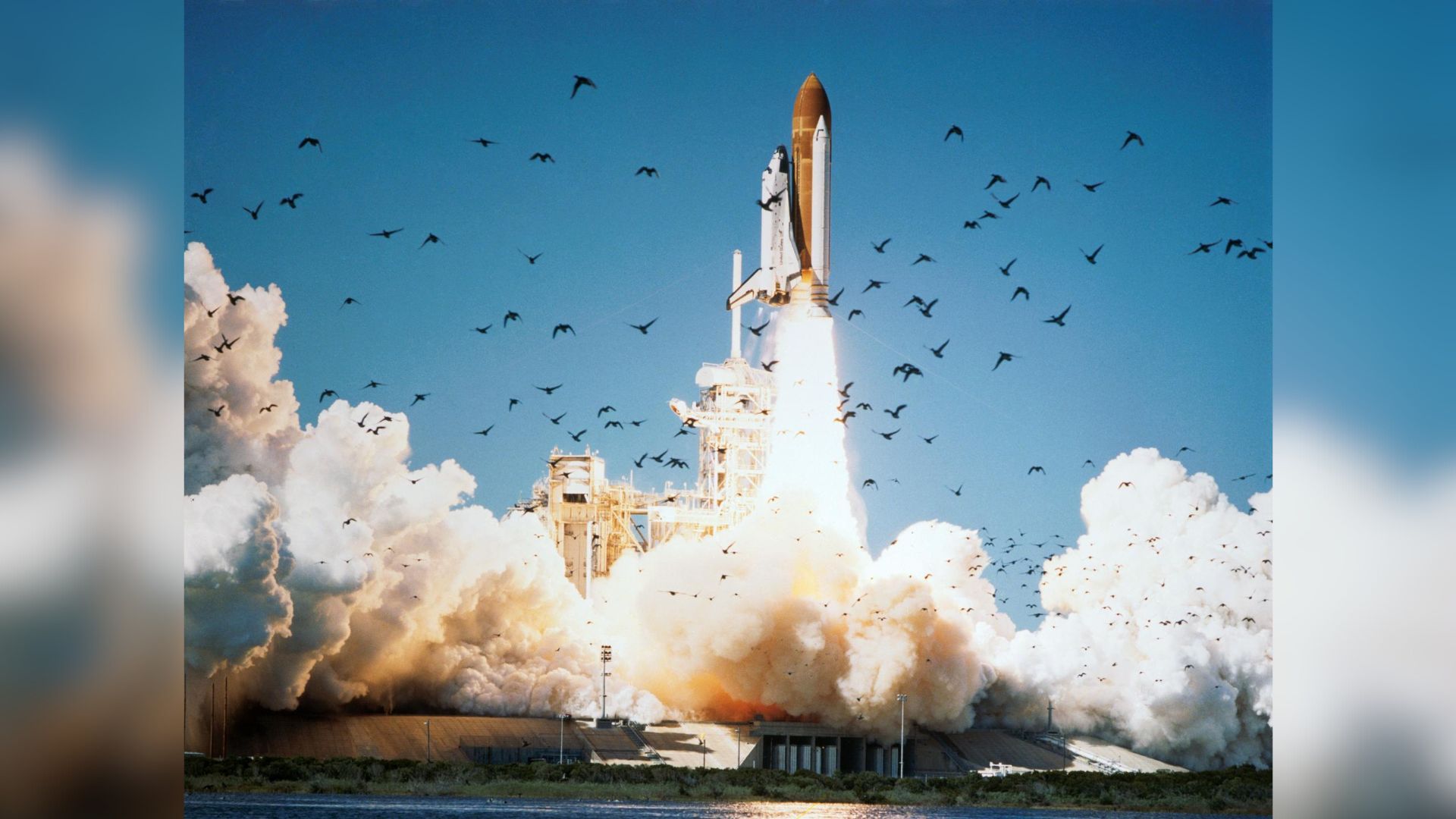SpaceX's next Falcon Heavy rocket launch may fly before Christmas
The next SpaceX Falcon Heavy launch date is up in the air, but the most optimistic projections have Viasat-3 flying in December. A Space Force payload is just behind, in 2023.
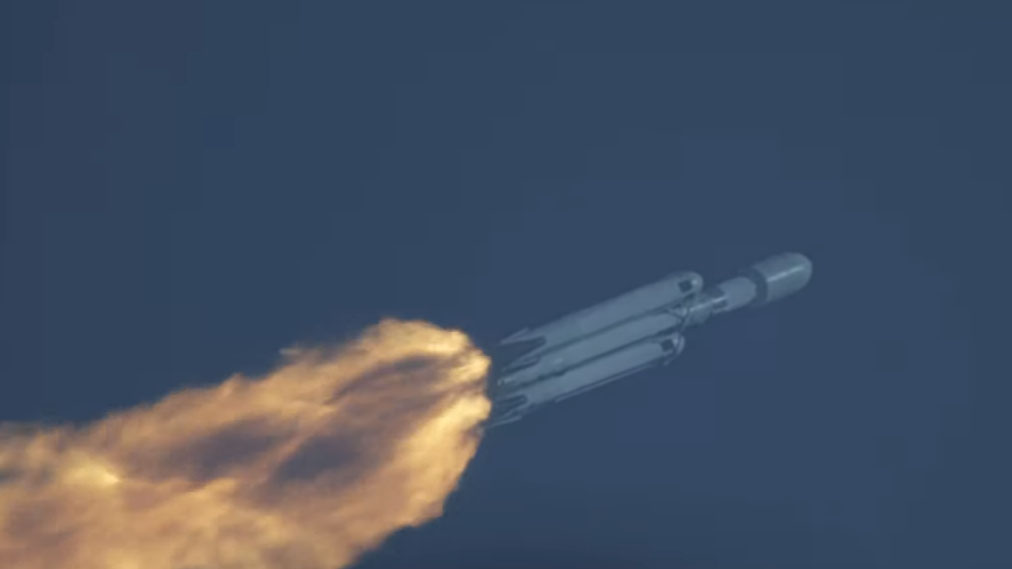
This week's SpaceX Falcon Heavy rocket launch was the first one of that type in 40 months, and whetted space fans' appetites for more.
Fans of Falcon Heavy, a massive rocket built by SpaceX, won't have that long of a gap next time after the epic Nov. 1 launch that hefted a military satellite to space. The next mission may launch as soon as December, although the timing has a lot of uncertainty.
There are two contenders for the next launch: another military satellite on behalf of Space Force, or a communications satellite for ViaSat to begin a trio of high-bandwidth communication launches.
ViaSat has not yet confirmed its October promise that the launch will go later this year, and likely won't do so until it releases financial results on Tuesday (Nov. 8), at the earliest. SpaceFlightNow's launch calendar suggests NET (no earlier than) December 2022, but the date is tentative and could push into the new year.
Related: Why SpaceX hasn't flown a Falcon Heavy rocket since 2019
Alternatively, a classified payload for Space Force (called USSF-67) is expected to go forward as soon as January 2023, according to an October report from SpaceFlightNow, which found possible clues for the satellite's functionality in the mission patch.
"Mission patches for the USSF-67 launch indicate it will carry the second spacecraft for the Space Force's Continuous Broadcast Augmenting SATCOM, or CBAS, program," the report stated. "The first CBAS satellite launched in 2018, and officials said then the satellite was designed to relay communications signals between senior leaders and military combatant commanders."
Breaking space news, the latest updates on rocket launches, skywatching events and more!
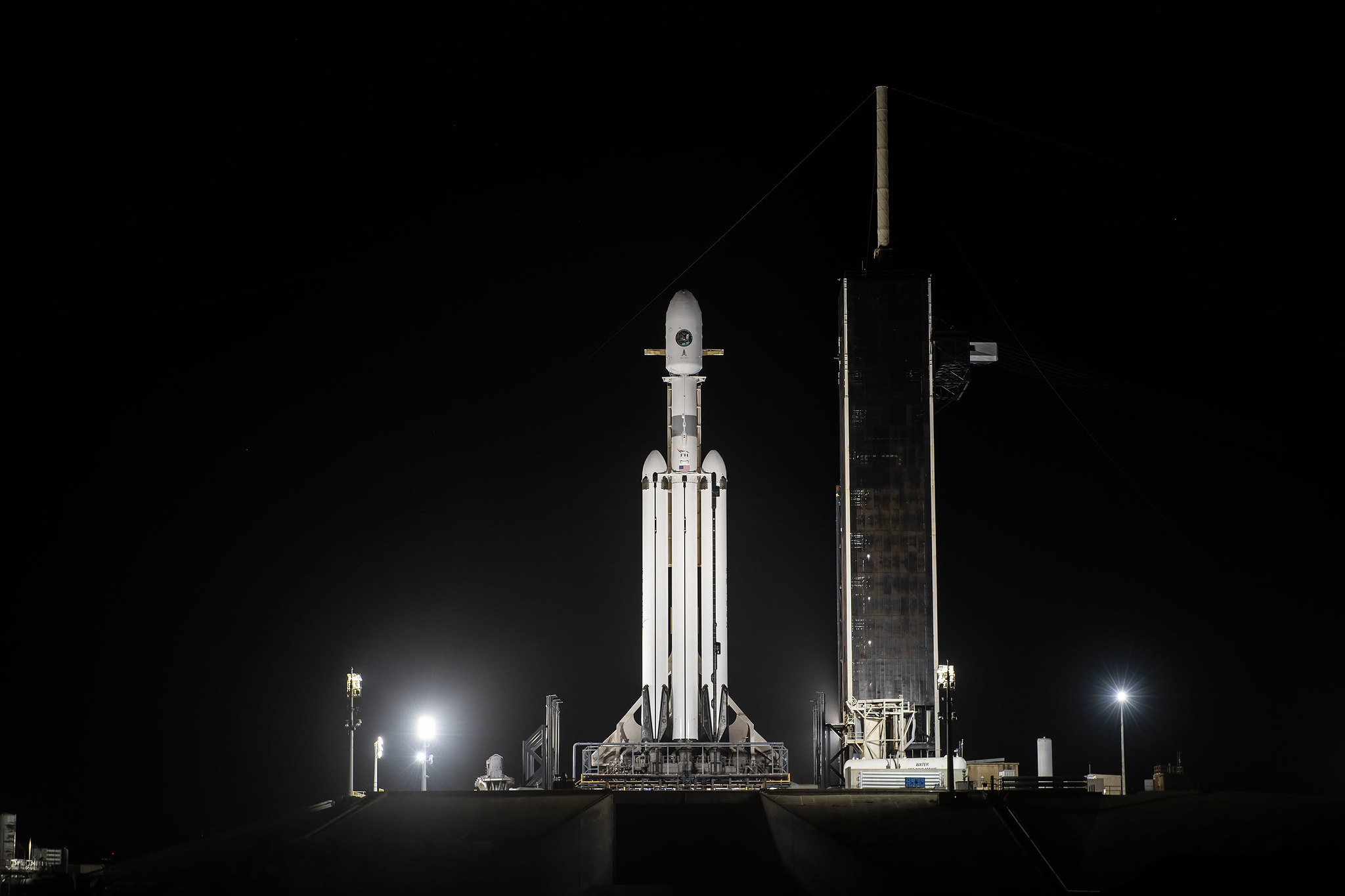
Ready for action
SpaceX's Falcon Heavy rocket awaits its flight to space on Launch Pad 39A at NASA's Kennedy Space Center.
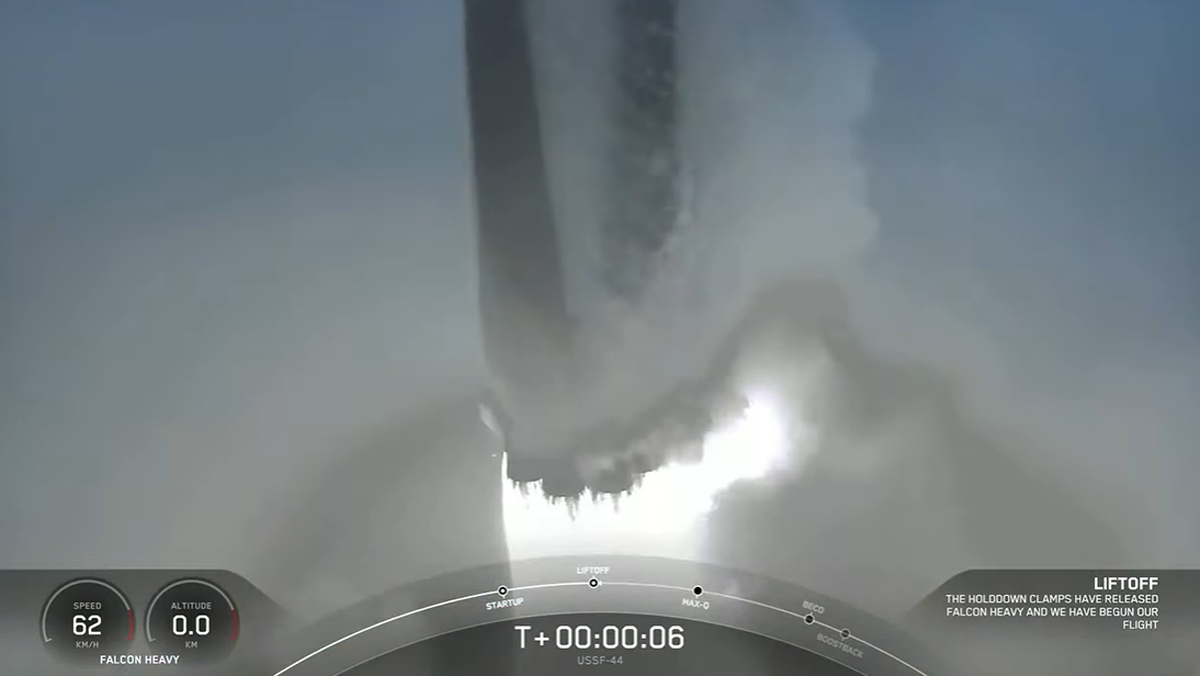
Blasting into a cloud
Fog shrouds the first liftoff of SpaceX Falcon Heavy in 40 months on Nov. 1, 2022.

Streaking for space
After lifting off in heavy fog conditions, the livestream showed SpaceX's Falcon Heavy streaking into space on Nov. 1, 2022.
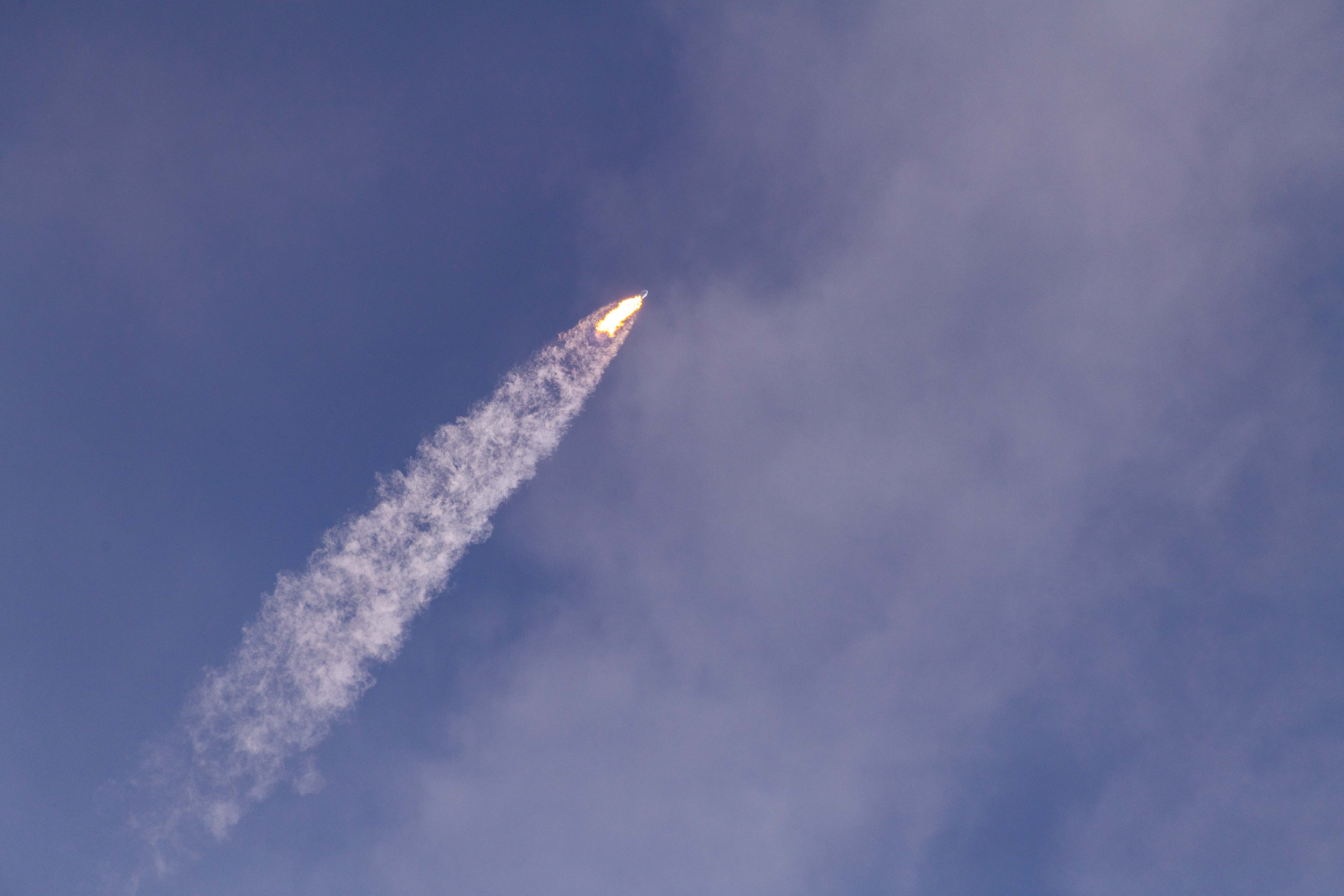
Borne on a contrail
The SpaceX Falcon Heavy launch on Nov. 1, 2022 was the first one in 40 months.
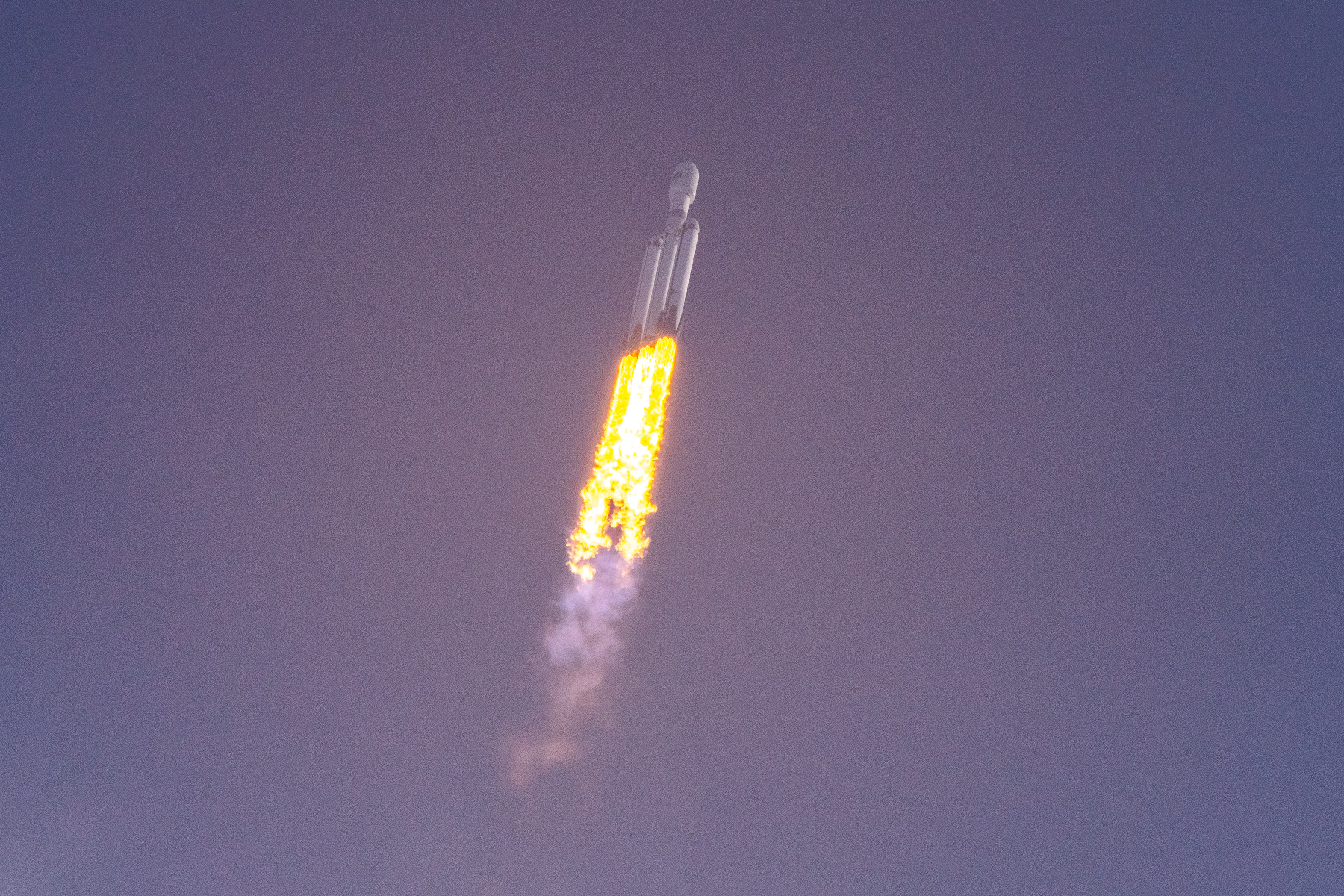
A weighty secret
The exact nature of the Space Force payload upon SpaceX's Falcon Heavy rocket Nov. 1, 2022 has not yet been disclosed.
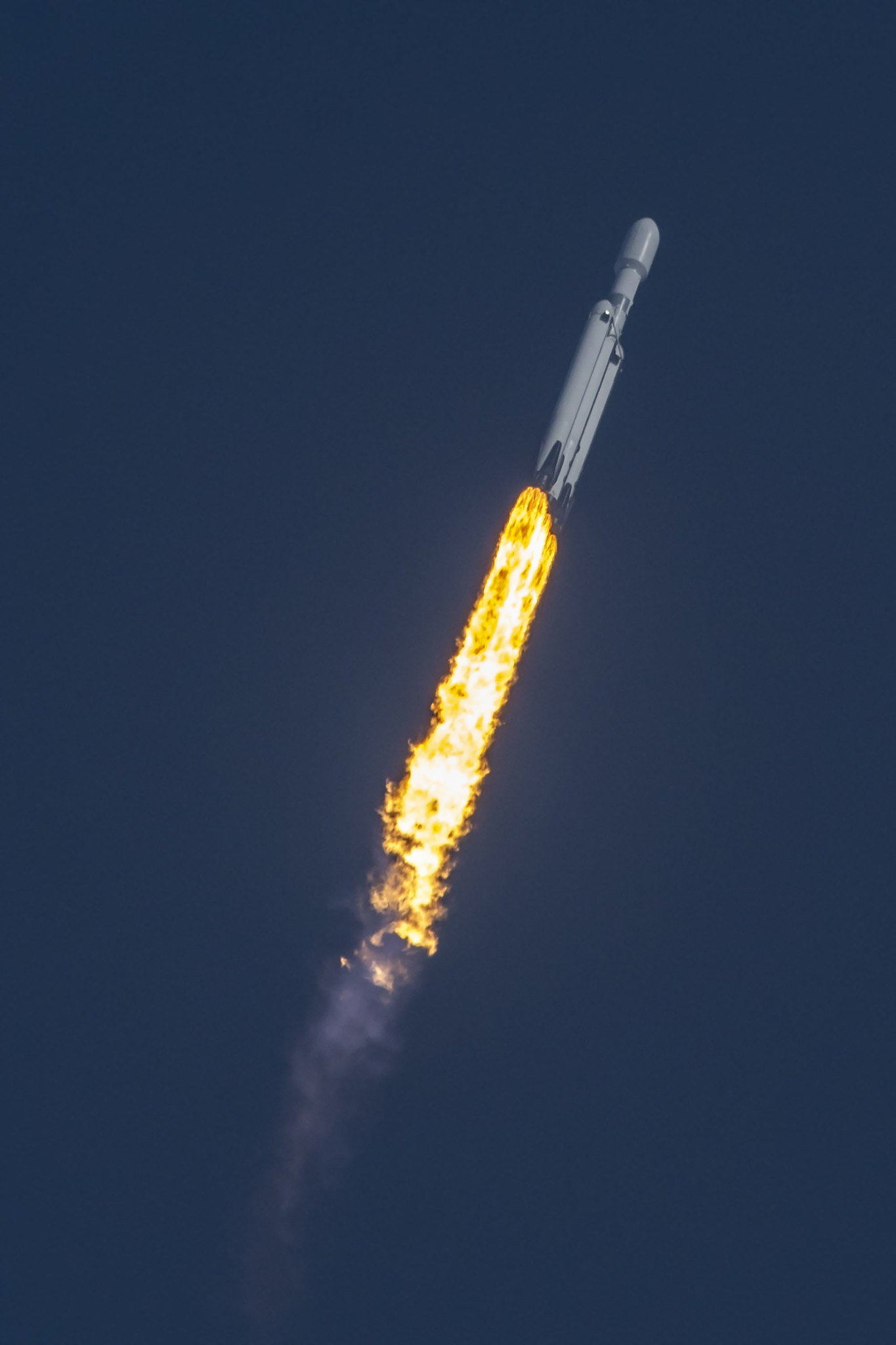
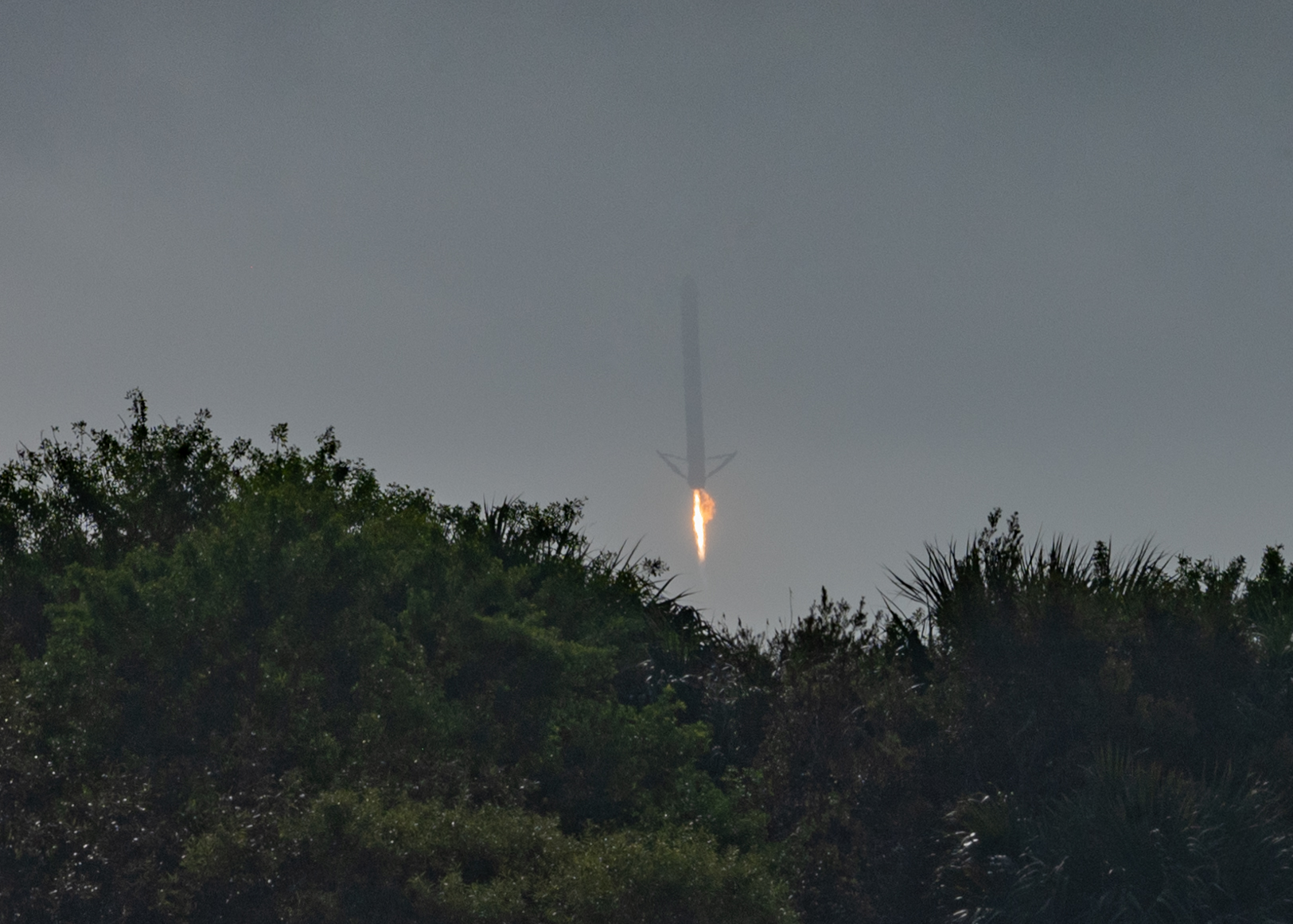
Foggy bottom
One of the SpaceX Falcon Heavy booster stages is barely visible in thick cloud conditions in Florida during landing Nov. 1, 2022.

Double touchdown
The two side stages for SpaceX Falcon Heavy pivot to a touchdown on Nov. 1, 2022.

Aiming for the ground
Another view of the SpaceX Falcon Heavy boosters making a safe touchdown on Nov. 1, 2022.
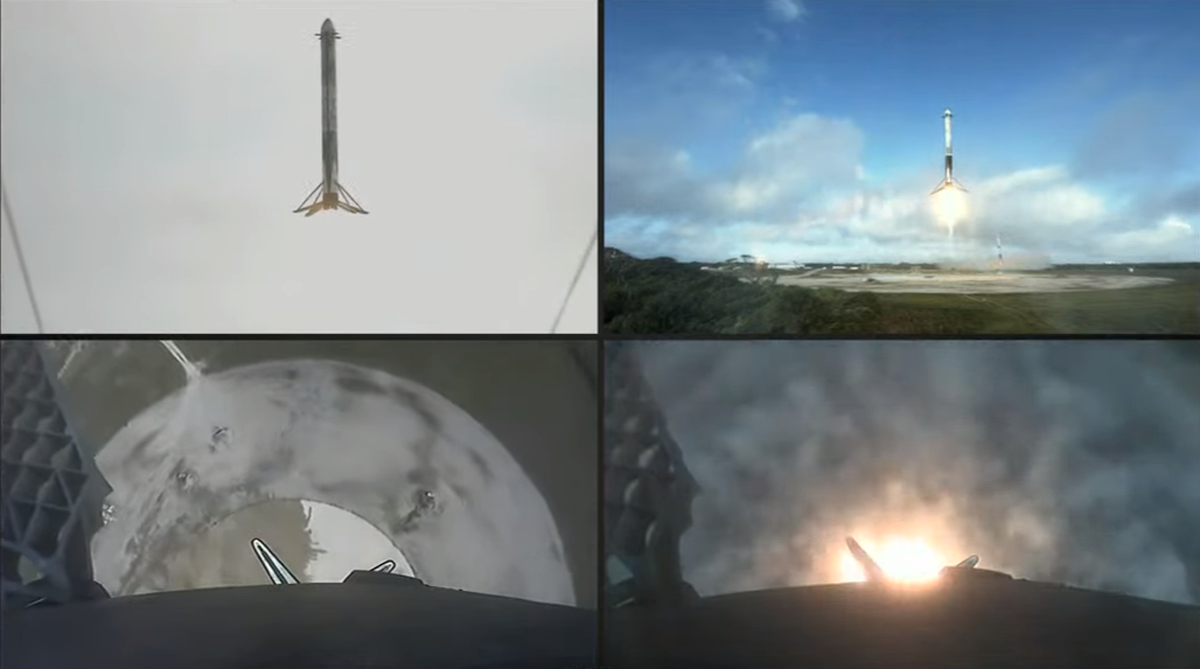
Quadruple confirmation
The livestream showed the two boosters making their way safely to touchdown after launching a SpaceX Falcon Heavy Nov. 1, 2022.
The long gap since the last launch in June 2019 was mostly due to delays with the delivery of payloads on the rocket's manifest, but in the meantime, SpaceX has been moving forward several times a month with launches of its much lighter Falcon 9 workhorse. It's already achieved more than 50 of those in 2022, which is a record.
Falcon Heavy itself is built on first-stage boosters, all modified versions of SpaceX's Falcon 9 rocket, that can make vertical touchdowns after liftoff. (The core stage usually drops upon a SpaceX drone ship in the ocean, although Tuesday's launch saw the stage ditch in the ocean due to needing to use most of its fuel to boost the satellite to geostationary orbit.)
Elizabeth Howell is the co-author of "Why Am I Taller?" (ECW Press, 2022; with Canadian astronaut Dave Williams), a book about space medicine. Follow her on Twitter @howellspace. Follow us on Twitter @Spacedotcom or Facebook.

Elizabeth Howell (she/her), Ph.D., was a staff writer in the spaceflight channel between 2022 and 2024 specializing in Canadian space news. She was contributing writer for Space.com for 10 years from 2012 to 2024. Elizabeth's reporting includes multiple exclusives with the White House, leading world coverage about a lost-and-found space tomato on the International Space Station, witnessing five human spaceflight launches on two continents, flying parabolic, working inside a spacesuit, and participating in a simulated Mars mission. Her latest book, "Why Am I Taller?" (ECW Press, 2022) is co-written with astronaut Dave Williams.
